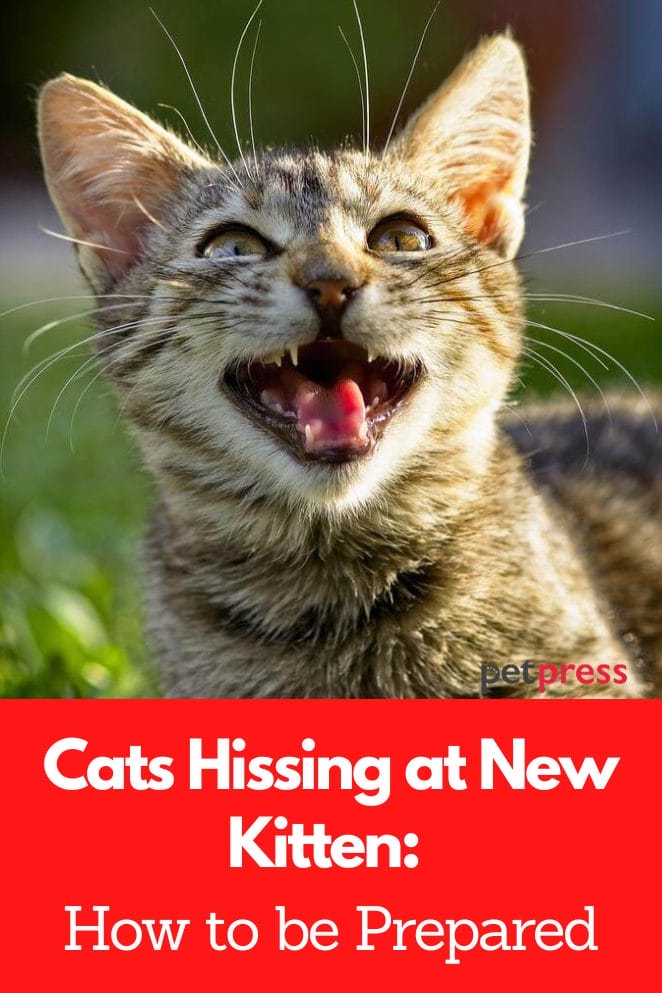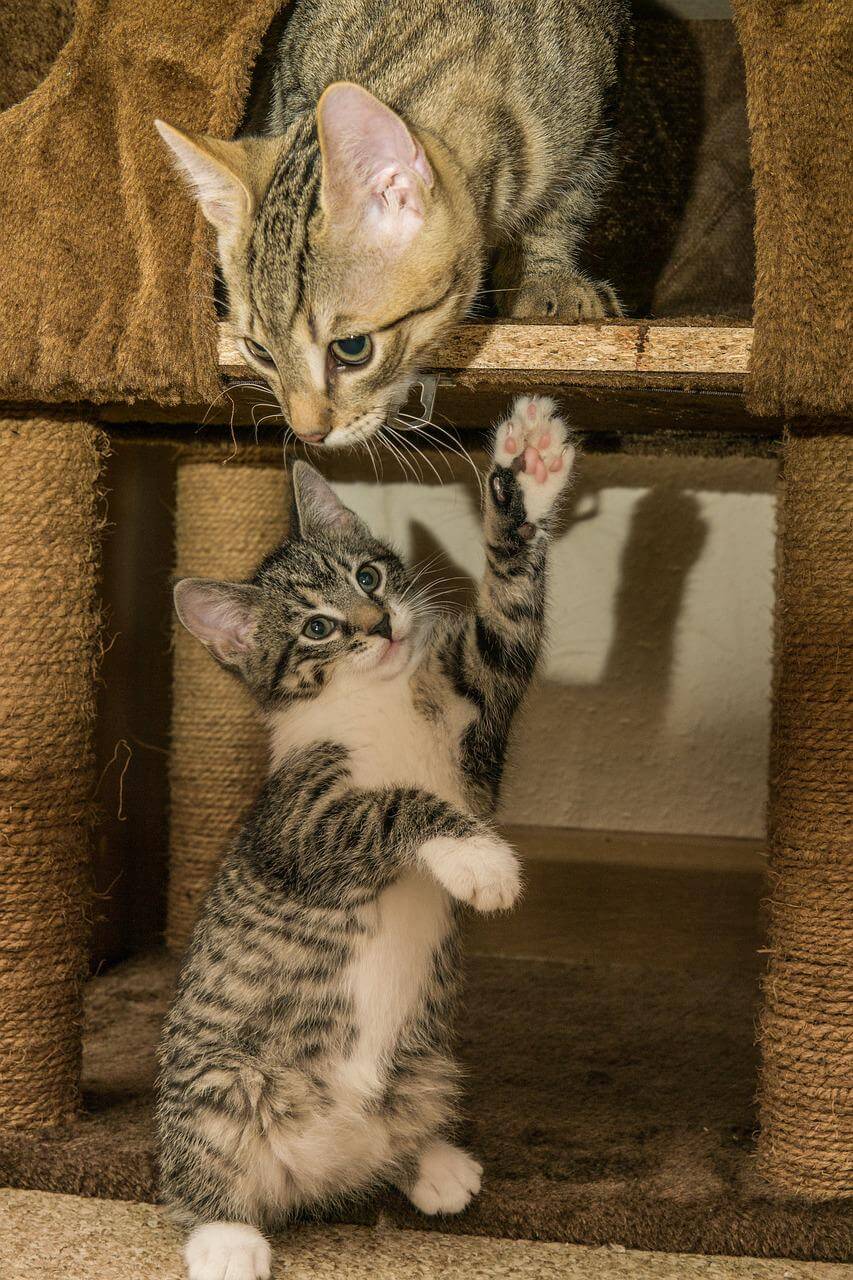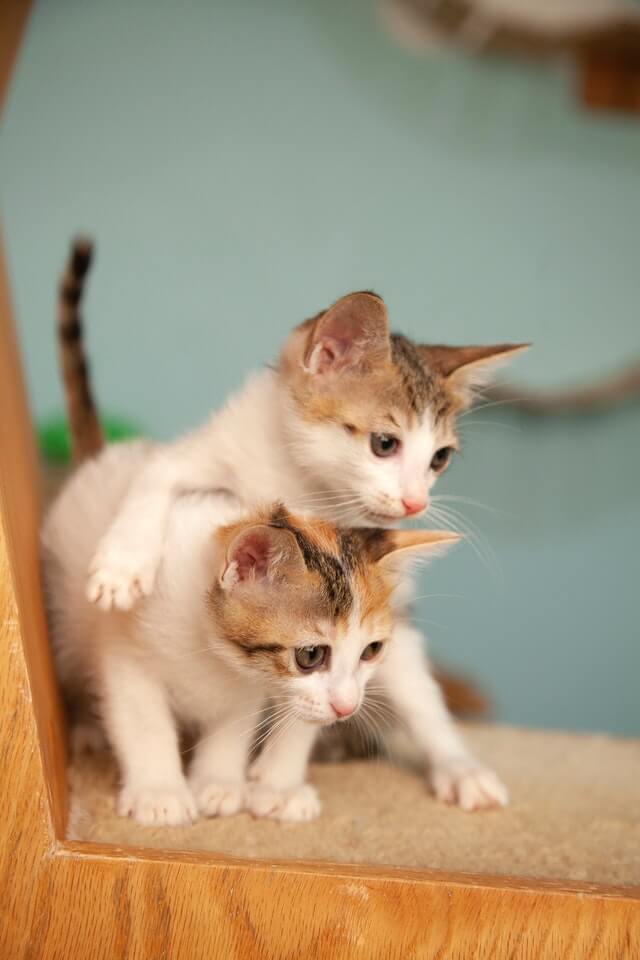
If you’ve ever brought a new kitten into your home and had your resident cat hiss at the newcomer, you’re not alone. Cats hissing at new kitten is a common reaction that they have to change. It’s usually nothing to worry about.
Cats are creatures of habit and they don’t like change. When a new kitten comes along, it’s natural for your resident cat to feel threatened. He may hiss at the kitten out of fear or jealousy.
Don’t worry, though – with a little time and patience, your cats will likely become the best of friends.
We have answered the top 3 questions that every cat parent has:
- Why does my cat hiss at my new kitten?
- How do I get my cat to stop hissing at my new kitten?
- How long does it take for my cat to adjust to a new kitten?
Read along to find out the answers and resolve the issue between your furry friends.
1. Why does my cat hiss at my new kitten?

A cat generally produces a hissing sound when it is introduced to a strange or a new animal. So when you introduce your new cat kitten to your pet cat, there might be a few reasons to hiss more:
Your new kitten is a threat to their territory.
Cats are very territorial creatures, and they see your new kitten as a potential threat to their dominance. When your cat hisses at the new kitten, they try to assert their dominance and keep the newcomer in line.
They’re feeling threatened or anxious.
Your new kitten may be small and harmless, but to your cat, it may seem like a big, scary intruder. This can be especially true if the new kitten is playful and fearless, which can come across as threatening to your cat. If your cat is feeling threatened or anxious, they may hiss as a way of defending themselves.
They’re communicating their displeasure.

Cats are very vocal creatures, and hissing is just one of the ways they communicate their feelings. If your cat is unhappy about something, they may hiss to let you know. For example, if the new kitten is taking all of your attention away from them, they may start hissing to get your attention.
They’re showing their dominance.
In addition to being territorial creatures, cats are also very hierarchical. When your cat hisses at the new kitten, they’re trying to establish themselves as the alpha in the relationship. This is especially likely if the new kitten is smaller than your cat or seems submissive.
They’re acting out of instinct.
Hissing is a natural instinct for cats, and it’s something they do when they feel threatened or uneasy. If your cat is hissing at the new kitten, it’s likely because they’re feeling scared or uncomfortable in the situation.
2. How do I get my cat to stop hissing at my new kitten?

By using certain ways you can stop your cat from hissing at a new kitty. Cats are fierce creatures so you have to establish a common ground when you get another one. Here are some of the methods that you can try:
Give your cat some space
Your cat may be feeling overwhelmed by the new addition to the family. Give him some time to adjust by keeping the kitten separate from him for a while. Let them meet gradually and under supervision so that your cat can get used to the new scent and presence of the kitten in his territory.
Make sure the kitten isn’t as intimidating
If the kitten is constantly hissing and running around, it’s only natural for your cat to feel defensive. Try to keep the kitten calm and avoid situations that would make him feel scared or threatened. This way, your cat won’t feel like he needs to protect himself all the time.
Don’t punish your cat

Punishing your cat will only make him more defensive and likely to lash out. Instead, try to reward him when he shows signs of good behavior around the kitten. This will help him associate positive feelings with the kitten and eventually learn to accept him.
Keep their environment clean
A clean environment is important for both your cat and the kitten. Make sure there are no areas where either of them can feel trapped or cornered. This will help reduce the chances of a confrontation between them. You can provide them with toys to keep them happy.
Seek professional help
If you’ve tried everything and your cat still seems stressed or aggressive around the kitten, it may be best to seek professional help from a veterinarian or animal behaviorist. They can assess the situation and provide you with more specific advice on how to deal with your cat’s behavior.
3. How long does it take for my cat to adjust to a new kitten?

Adding a new kitten to your home can be an exciting time for both you and your existing cat. However, it’s important to give your feline friend some time to adjust to the new arrival. Here’s a look at how long it typically takes for a cat to get used to a new kitten.
In most cases, it will take a few days for your cat to get used to the new kitten. Most cats will start to warm up to the new addition and may even start playing together after 8 months to a year.
If you have multiple cats, it may take a bit longer for them all to get used to the new kitten. It’s important to give each cat its own space and time to adjust. Eventually, they should all be able to coexist peacefully.
Parting Tips
If you’re considering introducing a new cat to your home, congratulations! You’re about to make your furry friend very happy.
When your cats seem ready to meet face-to-face, let them approach each other on their own terms. If either cat seems uncomfortable or stressed, give them some space and try again later.
With a little patience and understanding, you’ll soon have two happy kitties who are best friends!
- 7 Dog Breeds With Webbed Feet And Why Do They Have Them - July 19, 2023
- 10 Best Fish For Small Tanks That Make Perfect Pets - July 18, 2023
- How to Breed Guinea Pigs: A Detailed Guide - July 17, 2023


GIPHY App Key not set. Please check settings